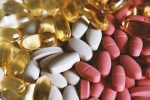Health Consequences of Drug Misuse and Abuse


Health Consequences of Drug Misuse and Abuse
Drug misuse and abuse can lead to a variety of serious health consequences, both physically and psychologically. These include:
- Damage to Organs
Misusing or abusing drugs can lead to severe damage to critical organs such as the brain, kidneys, and liver. This can result in conditions like psychosis (mental illness), liver failure, kidney disease, and brain damage. - Psychological Issues
Drug abuse can cause psychological problems such as depression, anxiety, paranoia, and hallucinations. Long-term use can lead to chronic mental health disorders. - Criminal Tendencies
Individuals who misuse or abuse drugs may develop criminal tendencies, including theft, fraud, or engaging in illegal activities to obtain drugs. - Sociopathic Behaviors
Drug abuse can lead to antisocial behaviors, such as aggression, violence, and actions like rape, which are harmful to both the user and others. - Lying and Stealing
Those addicted to drugs often lie or steal in order to fund their drug habits. This creates problems in personal relationships and can lead to legal issues. - Loss of Job
Chronic drug misuse can result in declining productivity at work, eventually leading to job loss. People under the influence may also struggle with focus, memory, and motivation. - Reduced Coordination and Neuromuscular Control
Drug misuse can impair motor skills and coordination, leading to difficulty with physical tasks and increasing the risk of accidents. - Development of High Blood Pressure
Certain drugs, particularly stimulants, can increase blood pressure, which may lead to heart disease, strokes, or other cardiovascular issues. - Impaired Judgment and Accidents
Drug abuse impairs judgment, leading to poor decision-making, which increases the risk of accidents, including car crashes, falls, and other injuries. - Frustration Leading to Suicide Tendencies
The emotional and mental toll of drug misuse can lead to frustration, feelings of hopelessness, and suicidal tendencies, especially if the individual is unable to cope with the consequences of their actions. - Physical Disability or Death
In extreme cases, the long-term misuse of drugs can lead to physical disabilities or even death, either from overdose, accidents, or organ failure.
Prevention of Drug Abuse/Misuse Among Young People
Drug misuse and abuse can be prevented through various strategies aimed at educating, regulating, and providing support to young people. Key preventive measures include:
- Public Education and Awareness
Raising awareness about the dangers of drug misuse and abuse through public campaigns, health talks, and educational programs can help reduce the number of young people experimenting with drugs. - Government Regulation
Governments should enforce laws to prevent the proliferation (rapid reproduction) and sale of illegal drugs. Stricter regulations on the sale of controlled substances can help limit access to harmful drugs. - Banning Drug Sales Near Educational Institutions
Drugs should not be sold near schools, colleges, or universities to prevent easy access for students. - Investigating Social Relationships
When drug use is identified, it’s essential to investigate the social networks of the individual, including friends and family, to find the source of the drugs and prevent further misuse. - Placing a Ban on Drug Sales to Children
Enforcing laws that prevent the sale of drugs to minors is crucial in reducing drug access among young people. - Monitoring Children’s Behavior
Parents and guardians should monitor children’s behavior and communicate any concerns to health professionals or schools if they notice unusual behavior linked to drug misuse. - Health Talks and True-Life Stories
Organizing health talks and sharing real-life stories from reformed drug users can provide valuable lessons and help students understand the risks of drug abuse. - Using Reformed Drug Users as Resource Persons
Inviting reformed drug users to share their experiences can help young people understand the consequences of drug abuse and encourage them to stay drug-free. - Visits to Psychiatric and Rehabilitation Centers
Taking students on visits to psychiatric hospitals or rehabilitation centers can provide a real-world understanding of the damage caused by drug abuse and the importance of rehabilitation. - Counseling (Individual or Group)
Offering individual or group counseling services helps young people deal with the pressures that might lead them to misuse drugs, and provides strategies for overcoming addiction. - Encouraging Alternatives to Drugs
Encouraging young people to engage in healthy activities, such as sports, games, and athletics, can provide them with alternatives to drug use and help develop healthier coping mechanisms. - Referrals to Experts
Early intervention is key. If signs of drug misuse are observed, young people should be referred to medical professionals or addiction specialists for proper treatment and guidance. - Radio Jingles and Advertisements
Utilizing media campaigns, including radio jingles and advertisements, can spread anti-drug messages, motivate young people to stay away from drugs, and create public awareness. - Treatment and Rehabilitation
Offering rehabilitation programs for individuals who have already engaged in drug misuse or abuse can help them recover, gain skills for coping, and reintegrate into society. Early treatment increases the likelihood of successful rehabilitation.
By implementing these strategies, society can help prevent drug abuse among young people and reduce the overall impact of drug misuse on individuals and communities.
Recommend Posts :
- Injuries That Require First Aid Treatments
- ENVIRONMENTAL HEALTH
- Meaning of air pollution
- Communicable and Non-Communicable Diseases
- Preventing Non-Communicable Diseases: A Guide to Healthy Living
- Understanding Drug Use, Misuse, and Abuse
- Drug Use, Misuse, and Abuse
- Ageing and Death
- Career Paths in Physical and Health Education
- The Need for Promotion of Sports in Our Society & Sport Promotion Agencies in Nigeria